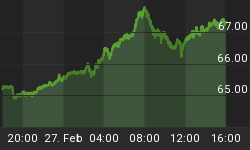Just a few years ago, automotive companies were promising that by this time we would have had self-driving cars and autonomous car-ride services.
Reality turned out somewhat different, although all big automakers are investing in driverless technology and continue to work toward offering self-driving platforms and vehicles at some point in the next decade.
Despite the fact that new tech-automotive alliances continue to be forged, carmakers are now more realistically suggesting that the driverless car is still years away from autonomously driving on roads.
Still, the biggest car manufacturers continue to invest in autonomous technology and software companies, aiming to move to the forefront of the driverless vehicle market in what looks like will be a crowded competition scene.
The latest such investment came from one of the top-selling automotive groups globally, South Korea’s Hyundai Motor Group.
Hyundai said this week that it would form a joint venture with Aptiv to advance the development of production-ready autonomous driving systems for commercialization of Level 4 and 5 self-driving technologies.
The joint venture is planned to start testing fully driverless systems next year. In 2022, it will have a production-ready autonomous driving platform available for robotaxi providers, fleet operators, and automotive manufacturers, Hyundai said.
In terms of investment, Hyundai and Aptiv will each have a 50-percent stake in the joint venture, which is valued at a total of US$4 billion. Hyundai Motor Group affiliates Hyundai Motor, Kia Motors, and Hyundai Mobis will collectively contribute US$1.6 billion in cash and US$400 million in vehicle engineering services, R&D resources, and access to intellectual property. Aptiv, for its part, will contribute its autonomous driving technology, intellectual property, and approximately 700 employees.
The 2022 date for production-ready autonomous driving platform is not a promise we’ll have self-driving cars in mass use, as Bloomberg Opinion columnist David Fickling writes. Related: Lithium Hype Can't Live Up To Supply Realities
Still, investment of US$2 billion in the autonomous vehicles joint venture over several years is good use of Hyundai’s money, and is little compared to Hyundai’s US$10 billion in annual investment in R&D, Fickling notes.
Although the Hyundai-Aptiv joint venture won’t start selling autonomous driving platforms in the millions in three years’ time, investment in such technologies is the future for a carmaker that doesn’t want to be left behind in the self-driving revolution.
Other automakers are also advancing driverless technology plans, but they are also admitting that the self-driving car is not as close as many thought a few years ago.
In April this year, Ford’s CEO Jim Hackett admitted that they “overestimated the arrival of autonomous vehicles,” and that self-driving “applications will be narrow, what we call geo-fenced, because the problem is so complex,” as carried by Bloomberg.
Ford, however, continues to test self-driving on public streets and said this week that Austin, Texas, will become its third launch market for self-driving vehicles, along with Miami-Dade County and Washington, D.C. Ford will expand its testing operations to Austin in collaboration with Argo AI, in which Ford is an investor.
Related: Tesla Scrambles To Salvage Its Stumbling Solar Business
Ford is also collaborating with Germany’s Volkswagen and Argo AI to introduce autonomous vehicle technology in the U.S. and Europe, “positioning both companies to better serve customers while improving their competitiveness and cost and capital efficiencies,” as Volkswagen said in July announcing the collaboration.
Another of Detroit’s Big Three, General Motors, said in July via its self-driving unit—Cruise—that it would delay commercial deployment of driverless vehicles beyond the 2019 target it had set because the cars needed more tests.
Despite setbacks in the timeline of commercially deploying driverless cars, automakers are not giving up on efforts to advance self-driving technology and boost investments in what they believe would be the future of mobility in a decade or two.
















